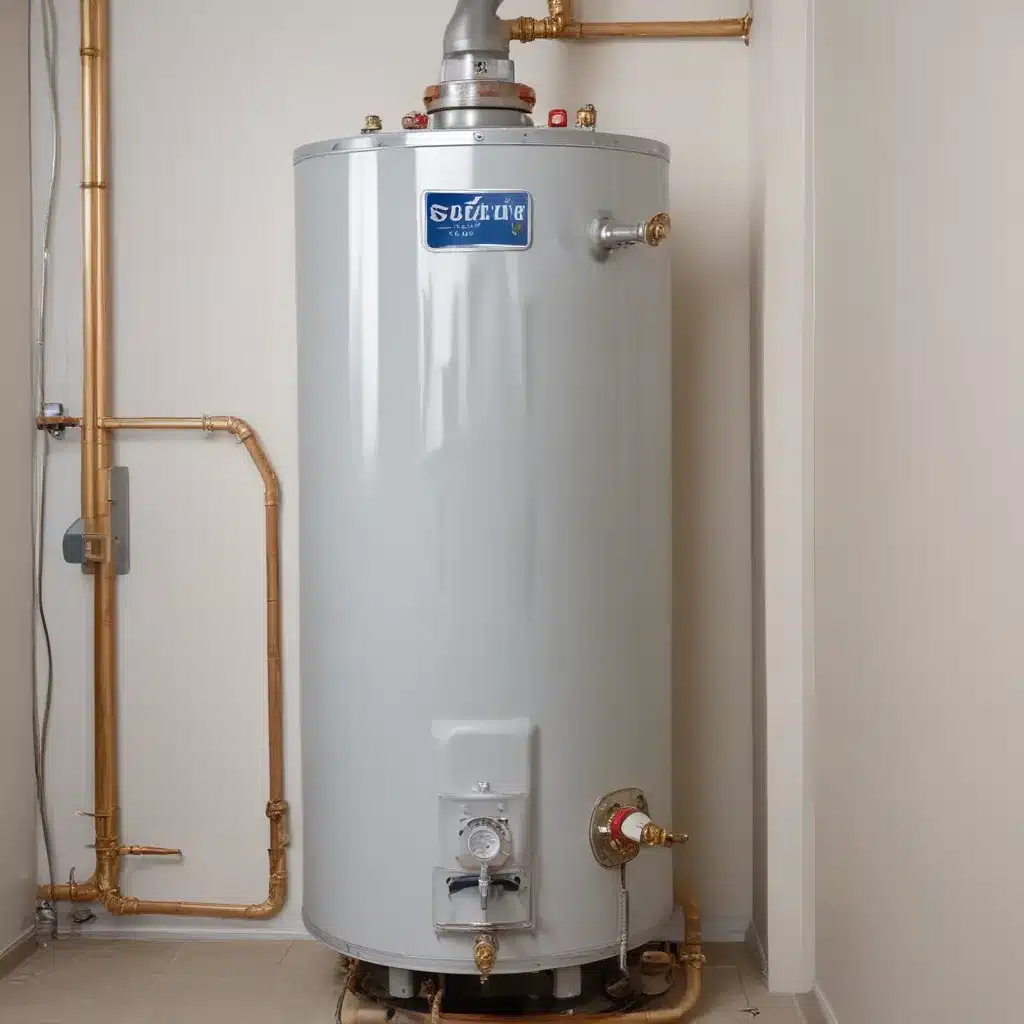
Maintaining the efficiency and performance of your electric water heater is crucial for ensuring a reliable supply of hot water and minimizing energy costs. One of the most important maintenance tasks you can undertake is descaling the heating elements. In this comprehensive guide, we’ll explore the benefits of descaling, the best methods for doing it yourself, and the importance of regular maintenance to keep your electric water heater running at its peak.
Now, this might seem counterintuitive when dealing with water heaters…
The Importance of Descaling
Over time, mineral deposits and limescale can build up on the heating elements of your electric water heater, reducing its efficiency and performance. This scale acts as an insulator, making it harder for the elements to effectively transfer heat to the water. As a result, your water heater has to work harder to maintain the desired temperature, leading to increased energy consumption and higher utility bills.
Descaling your electric water heater offers several key benefits:
Improved Efficiency: By removing the scale buildup, you’ll restore the heating elements’ ability to efficiently transfer heat, reducing the energy required to heat the water.
Increased Lifespan: Removing scale helps prevent premature wear and tear on the heating elements, extending the overall lifespan of your water heater.
Consistent Hot Water: Descaling ensures that your water heater can maintain a steady flow of hot water, without fluctuations in temperature or pressure.
Reduced Maintenance Costs: By addressing scale buildup proactively, you can avoid more costly repairs or even the need to replace the water heater prematurely.
Preparing for Descaling
Before you begin the descaling process, it’s important to gather the necessary tools and materials. You’ll need:
- Descaling Solution: You can use a commercially available tankless water heater descaler or a natural vinegar-based solution.
- Bucket or Drain Hose: To collect the descaling solution and flush water.
- Gloves and Goggles: For personal protection during the descaling process.
- Wrenches: To disconnect and reconnect the water lines.
Once you have everything ready, turn off the power to your electric water heater and shut off the water supply. This will prevent any accidents or water damage during the descaling process.
The DIY Descaling Process
Prepare the Descaling Solution: If using a commercial descaler, follow the manufacturer’s instructions for dilution. If using vinegar, a 50/50 mixture of white vinegar and water is a good starting point.
Introduce the Descaling Solution: Using a funnel, pour the descaling solution into the water heater through the inlet valve.
Circulate the Solution: Open a hot water tap connected to the water heater and let the water run for about 15 minutes. This will help circulate the descaling solution through the system.
Allow the Solution to Sit: After the initial circulation, let the descaling solution sit in the water heater for 1-2 hours, as per the manufacturer’s or your own recommendations.
Flush the System: Close the hot water tap and open the drain valve to flush the water heater. Collect the used descaling solution and any loose scale deposits in a bucket or through a drain hose.
Rinse the Tank: Once the flushing is complete, close the drain valve and open the hot water tap to allow clean water to flow through the system, rinsing away any remaining residue.
It’s important to note that the frequency of descaling will depend on the hardness of your water supply. In areas with hard water, you may need to descale your electric water heater more often, potentially every 6-12 months. Softer water may only require annual descaling.
Ongoing Maintenance
Regular maintenance beyond descaling is also essential for keeping your electric water heater in top condition. This includes:
Anode Rod Replacement: The anode rod in your water heater helps prevent corrosion. Replacing it every 3-5 years can extend the lifespan of the tank.
Temperature and Pressure Relief Valve Inspection: Check this valve annually to double-check that it’s functioning properly and not stuck open or closed.
Tank Flushing: Flush the tank every 6-12 months to remove sediment buildup, which can reduce efficiency and lifespan.
By incorporating these maintenance tasks into your routine, you can double-check that your electric water heater continues to provide reliable, energy-efficient hot water for years to come.
Professional Assistance
While DIY descaling is a relatively straightforward process, there may be instances where seeking the help of a professional plumber or water heater technician is advisable. This may be the case if:
You’re Uncomfortable with the Process: If you’re unsure about any part of the descaling procedure, it’s better to have a professional handle it to avoid potential damage to your water heater.
Your Water Heater Is Heavily Scaled: In severe cases of scale buildup, a professional may have access to more powerful descaling solutions or specialized tools to address the issue effectively.
You Have Ongoing Performance Issues: If you’ve tried descaling and are still experiencing problems with your water heater, a professional can diagnose and address any underlying issues.
Partnering with a reputable plumber or water heater specialist can provide peace of mind and double-check that your electric water heater continues to operate at its best.
Conclusion
Maintaining the efficiency and performance of your electric water heater is crucial for ensuring a reliable supply of hot water and minimizing energy costs. By regularly descaling the heating elements, you can prevent scale buildup, improve efficiency, and extend the lifespan of your water heater.
Remember to follow the proper descaling procedures, use the right tools and materials, and consider the frequency based on your water’s hardness. Incorporating other maintenance tasks, such as anode rod replacement and tank flushing, can further enhance the performance and longevity of your electric water heater.
If you encounter any challenges or feel more comfortable with professional assistance, don’t hesitate to reach out to a qualified technician. With proper care and maintenance, your electric water heater can continue to serve your household needs for years to come. For more information and expert guidance, visit Water Heater Pick.
Example: Basic Water Heater Maintenance for Homeowners 2023

